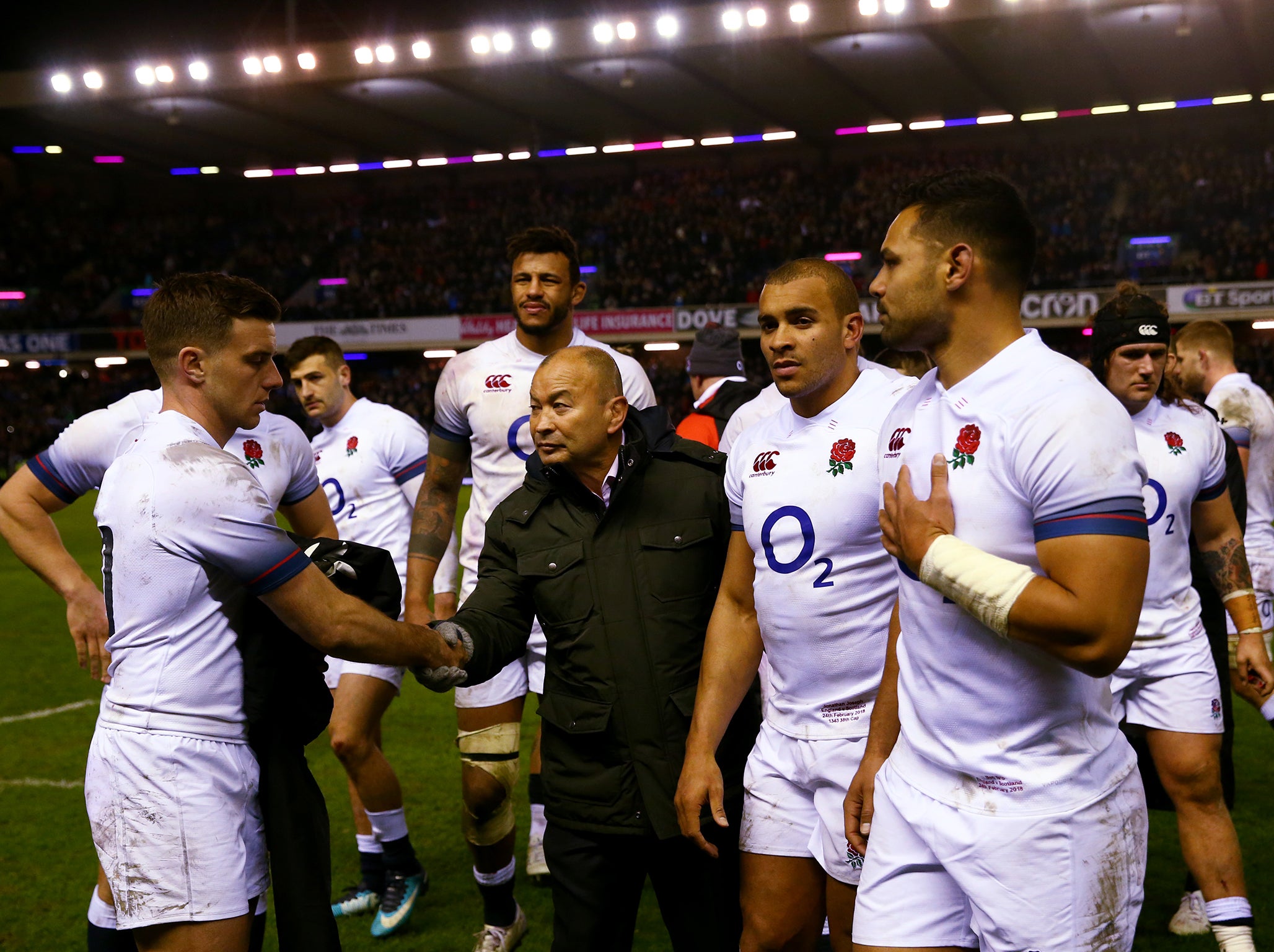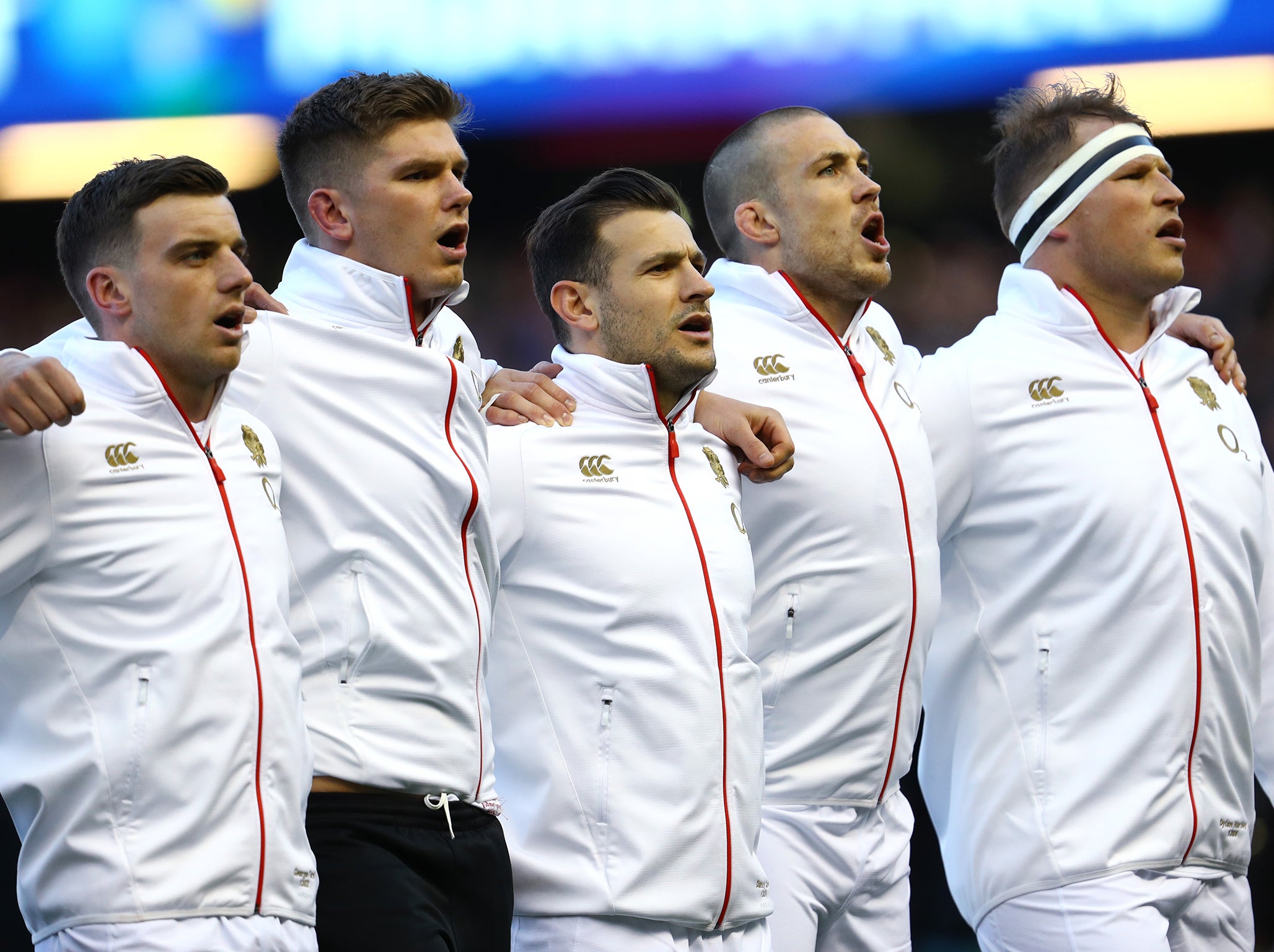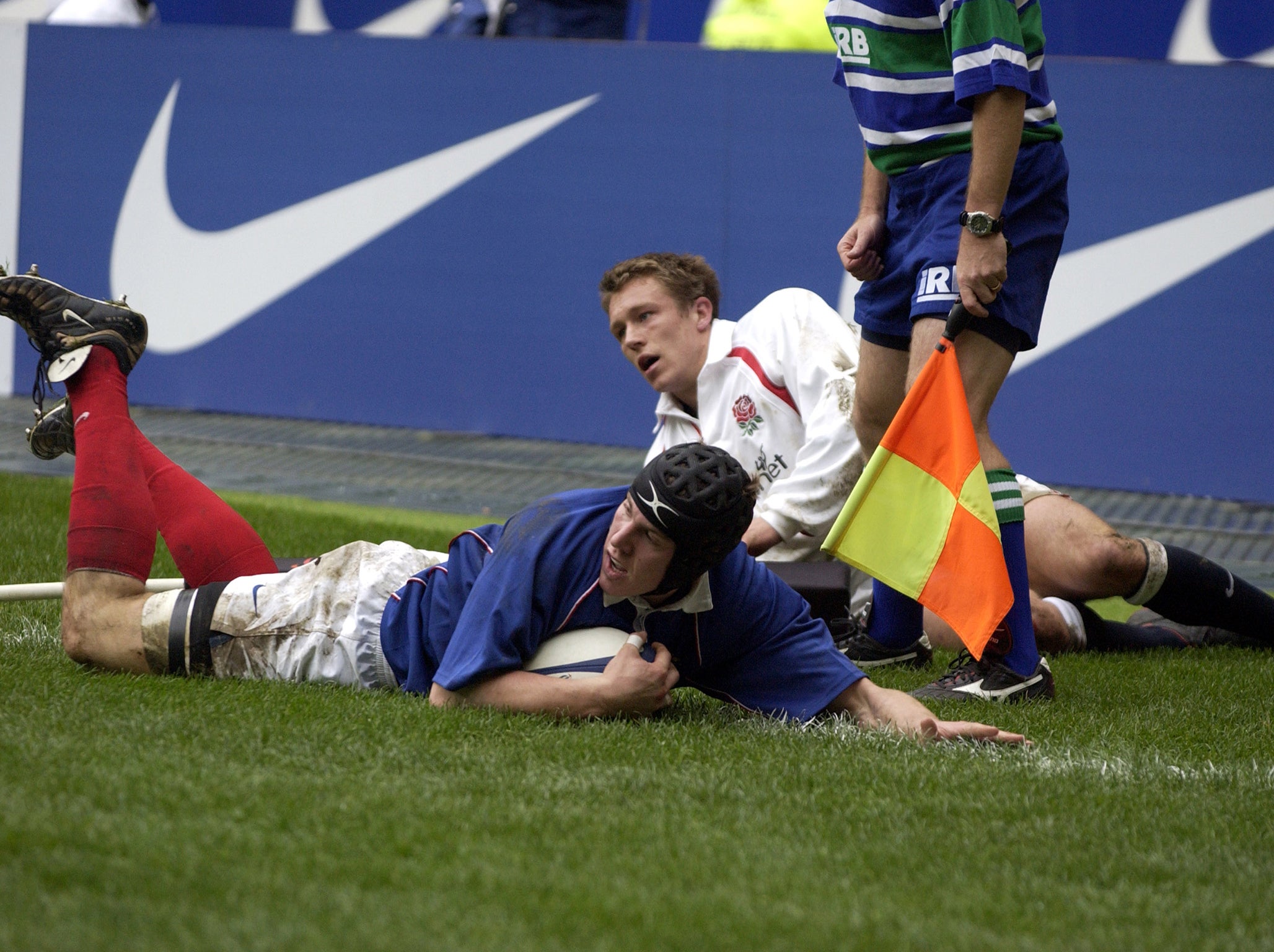Did England simply switch off in Scotland...or does their defeat point towards a more troubling problem?
The 2019 Rugby World Cup begins in 19 months’ time, and England cannot afford any more of these performances. How worried should Eddie Jones be?

Your support helps us to tell the story
From reproductive rights to climate change to Big Tech, The Independent is on the ground when the story is developing. Whether it's investigating the financials of Elon Musk's pro-Trump PAC or producing our latest documentary, 'The A Word', which shines a light on the American women fighting for reproductive rights, we know how important it is to parse out the facts from the messaging.
At such a critical moment in US history, we need reporters on the ground. Your donation allows us to keep sending journalists to speak to both sides of the story.
The Independent is trusted by Americans across the entire political spectrum. And unlike many other quality news outlets, we choose not to lock Americans out of our reporting and analysis with paywalls. We believe quality journalism should be available to everyone, paid for by those who can afford it.
Your support makes all the difference.And then there was one: one side who can still win the Six Nations Grand Slam. Yet on the evidence of Saturday’s events at Murrayfield, Ireland will do exceptionally well to reach the final weekend of the championship unbeaten.
If Scotland can reproduce this incredible first-half performance that helped see off England 25-13, they have every chance of ending Ireland’s hopes of a clean sweep. They of course will have to do so without the inspiring sound of 65,000 Scots behind them and without the help of any mind games that certainly put England off on Saturday when they head to Dublin. After all, something got to England, because in 25 previous matches under Eddie Jones, England have never played this badly.
At least not for the first 40 minutes. Could anyone wearing white leave the field at half-time with their head held high? Nathan Hughes made a good start but by the end of the first period he was falling off tackles that gifted Huw Jones his second try. Jonny May had a few injections of speed that livened up the game, but the end result was missing. That was about as good as it got, and while it was slightly surprising that England had been limited to just two Owen Farrell penalties, it was unthinkable that Scotland had surged clear with three tries.
Something had gone wrong, and afterwards, Eddie Jones did what Eddie Jones does – he refused to blame the players and took responsibility himself.
“We were ready for it, it is the Calcutta Cup, it is 144 years of rugby history,” Jones said. “We knew the significance of the game, we knew what we would get thrown at us at Murrayfield. 65,000 people all passionate about Scotland, you get off the bus and people are yelling abuse at you.
“We knew all of that but we weren’t good enough to handle it. You have got to be good enough to handle it and we weren’t today. I apologise for our performance. Scotland played better than us, they were too good for us – sometimes this happens.”
The only other time it happened was in last year’s Six Nations Grand Slam decider when, having already wrapped up the title, England were suffocated by Ireland at the Aviva Stadium. On that occasion, Jones struck a very similar chord, but there was no backlash or alarm bells as the loss ended a world record-equalling 18-match winning streak. But this time around, the maths just doesn’t add up.
For starters, there’s the strange tunnel fracas between, according to the match broadcasters the BBC, Owen Farrell and a select group of Scotland players. What actually happened is unknown given that no one would speak about it after, but was it a sign of England losing their heads?
The team bus had already been slowly led in by the Murrayfield bagpipers, and once the two teams had finally emerged, they waited, and waited, and waited. The royal welcome to Princess Anne seemed to take that little bit longer, so much so that when the backing anthem finished, she still had six Scottish players to meet and greet, before an additional word with captain John Barclay.
England meanwhile were standing around, getting cold. Maro Itoje decided to leave the line and get himself a drink of water, Anthony Watson jumped up and down to try and keep some warmth in his legs. Needless to say, it was not ideal preparation for an international Test match. Given that the previous defeat came in Dublin, where similar pre-match ceremonies take place in a presidential welcome and not two but three anthems are played, do England switch off?

There’s more evidence on this showing that that’s true, given how poorly England started the match. After half-time they were better, and it was Scotland making the mistakes that looked potentially costly, but as long as the gap was over 10 points it never actually looked like a momentum shift had been completed. Sam Underhill’s yellow card felt like the final nail in the coffin, given that it would have been the biggest comeback for England against Scotland ever seen in their 139 years of competition and the third biggest of any tier one nation encounter that featured a 16-point half-time deficit.
In fairness, Jones was a humble man afterwards, and while the points of interest surrounded the pre-game incidents and the post-game autopsy of England’s display, the Australian repeatedly paid tribute to a better Scotland team. He vowed to learn from whatever errors that he and his side made, but another problem is that these lessons need to be learned quickly. The 2019 Rugby World Cup begins in 19 months’ time, and England cannot afford any more of these performances.
“These are lessons you don’t want to have but they’re the best lessons in the world,” Jones added. “We’ll learn a lot from this. Unfortunately the lessons sometimes aren’t nice to take but we’ll learn a lot. We weren’t there in the first half and I take responsibility for it. I didn’t prepare the team as well as I should have and that’s my fault.”

A silver lining for England is that every great team goes through something like this. The England side that won the 2003 Grand Slam before clinching World Cup glory went through the agony of losing the 1999 and 2002 titles and 2000 and 2001 Grand Slams; the great All Blacks suffered 24 years of World Cup hurt before finally securing their first step towards World Cup greatness in 2011.
But it will only be a silver lining if England can learn the right lesson from this and discover how to banish this type of performance from their game. With France, Ireland and a three-Test tour of South Africa coming up – plus New Zealand in the autumn – we’re going to find out if they are capable of doing just that.
Join our commenting forum
Join thought-provoking conversations, follow other Independent readers and see their replies
Comments